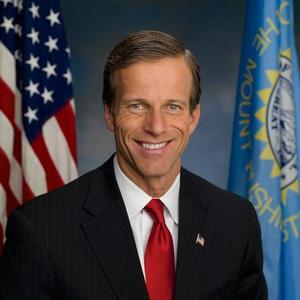Bill to require EPA to update GREET reintroduced in Senate

February 3, 2021
BY Erin Krueger
Sens. John Thune, R-S.D., and Amy Klobuchar, D-Minn., on Feb. 3 reintroduced legislation that aims to require the U.S. EPA to update its outdated greenhouse gas (GHG) modeling for ethanol and biodiesel.
The bill, titled the Adopt Greenhouse Gas and Regulated Emissions and Energy Use in Transportation (GREET) Act, would require the EPA to adopt the latest version of Argonne National Laboratory’s GREET model, which more accurately reflects the GHG reductions achieved by biofuels.
Thune previously introduced the bill in August 2020. Sens. Mike Round, R-S.D., Chuck Grassley, R-Iowa, and Joni Ernst, R-Iowa, cosponsored that bill.
Advertisement
Advertisement
The American Coalition for Ethanol has spoken out in support of Thune and Klobuchar’s reintroduction of the bill. “Recent studies prove there is no silver bullet solution to decarbonize transportation fuels,” said Brian Jennings, CEO of ACE. “Therefore, a portfolio of low carbon fuel strategies, including increasing the use of ethanol, will be required. Senator Thune’s and Klobuchar’s legislation would help lay the groundwork by requiring EPA to apply the latest GREET model to more accurately account for corn ethanol’s carbon intensity when establishing regulations which could impact ethanol use in the future.
“The U.S. Department of Energy GREET model, which is widely-recognized as the gold standard tool for determining the lifecycle greenhouse gas emissions of transportation fuels, indicates that corn ethanol reduces greenhouse gases by 50 percent compared to gasoline,” he continued. “Unfortunately, EPA has disregarded this latest lifecycle science and continues to cling to a flawed and outdated model which shows corn ethanol is only 20 percent cleaner than gasoline.
“ACE board member Ron Alverson has worked with scientists in the Argonne National Lab to pursue improvements to the GREET model over the years, including updates to land use change assumptions and accounting for soil carbon sequestration and nitrogen fertilizer management,” Jennings added. “A 2018 white paper authored by Alverson was instrumental in shaping a recent report by Harvard and Tufts validating ethanol’s carbon intensity is 50 percent less than gasoline. As Alverson says, ‘the trend is ethanol’s friend,’ and ACE will continue to champion for the adoption of the best available science to help steer policy decisions made at the state and federal levels.”
Growth Energy has also spoken out in support of the bill. “Biofuels continue to prove their environmental benefits and significance in our nation’s climate change efforts,” said Emily Skor, CEO of Growth Energy. “Just last week, a study was released that found that greenhouse gas emissions from corn ethanol are 46 percent lower than gasoline, up from a previous reporting of 39 percent. As the science on biofuels and innovative farming techniques continue to improve, updating the modeling at EPA is long overdue and necessary to fully reflect biofuels’ potential to decarbonize the transportation sector and provide Americans with immediate cleaner options at the pump.
Advertisement
Advertisement
“We thank Senators Thune and Klobuchar for introducing the Adopt GREET Act and for their tireless efforts on behalf of biofuels.”
Related Stories
The USDA significantly increased its estimate for 2025-’26 soybean oil use in biofuel production in its latest World Agricultural Supply and Demand Estimates report, released July 11. The outlook for soybean production was revised down.
U.S. fuel ethanol capacity fell slightly in April, while biodiesel and renewable diesel capacity held steady, according to data released by the U.S. EIA on June 30. Feedstock consumption was down when compared to the previous month.
The U.S. EPA on July 8 hosted virtual public hearing to gather input on the agency’s recently released proposed rule to set 2026 and 2027 RFS RVOs. Members of the biofuel industry were among those to offer testimony during the event.
The USDA’s Risk Management Agency is implementing multiple changes to the Camelina pilot insurance program for the 2026 and succeeding crop years. The changes will expand coverage options and provide greater flexibility for producers.
The USDA’s National Agricultural Statistics Service on June 30 released its annual Acreage report, estimating that 83.4 million acres of soybeans have been planted in the U.S. this year, down 4% when compared to 2024.
Upcoming Events










